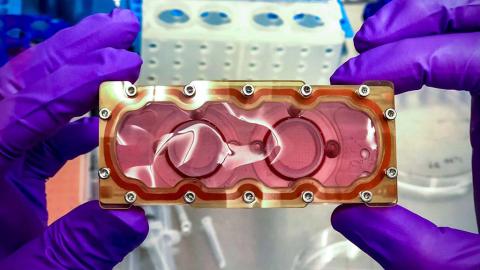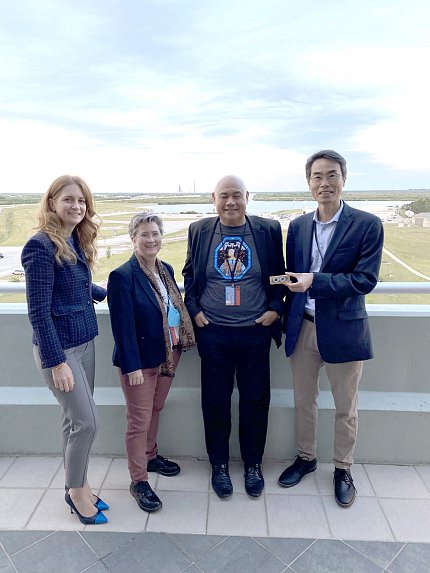NCATS-Supported Tissue Chips Head to Space Once More

Photo: Joseph Wu, Dilip Thomas & Xu Cao/Stanford Cardiovascular Institute
Tissue chips are small devices that contain human cells. Scientists use the chips to test how the cells respond to different stresses, drugs and genetic changes.
On Mar. 14, the Tissue Chips in Space program, supported by the National Center for Advancing Translational Sciences (NCATS) and the International Space Station (ISS) National Laboratory, sent chips that mimic functions of the human heart into space.
The SpaceX Dragon spacecraft was launched to the ISS by a Falcon 9 rocket at 8:30 p.m. ET from NASA’s Kennedy Space Center in Florida. The cargo spacecraft was scheduled to autonomously dock with the station at 7:52 a.m. ET on Mar. 16 and remain at there for about 30 days.

Two heart tissue chip studies—Cardinal Heart 2.0 and Engineered Heart Tissues 2—were sent to spend time at the ISS so researchers on Earth can see how microgravity affects these tissues, which can help them better understand cardiac conditions like heart disease.
Since 2016, NCATS has partnered with the ISS National Lab to collaborate on refining tissue chip technology for biomedical research use on the space station.
Previous launches contained chips mimicking lung infection and bone marrow response, bone and cartilage, the kidney and the blood-brain barrier that protects our brain from infections and toxins in the blood.
Other chips involved earlier in the space project include studies on the aging of the immune system (immunosenescence), muscle wasting (sarcopenia) and gut inflammation due to changes in the microbiome.
Translational research at the ISS National Lab provides unprecedented opportunities to study the effects of a microgravity environment on the human body.
Cardinal Heart 2.0 and Engineered Heart Tissues-2 are the final two experiments of the NIH-ISS Tissue Chips in Space initiative.
Read more about the projects from Stanford Cardiovascular Institute and Johns Hopkins Biomedical Engineering: https://bit.ly/3JvNMfw.
